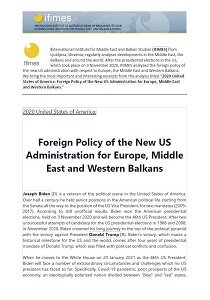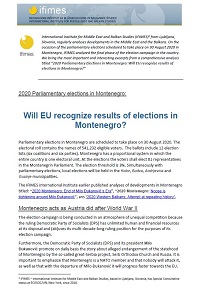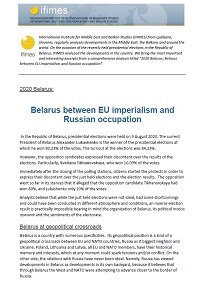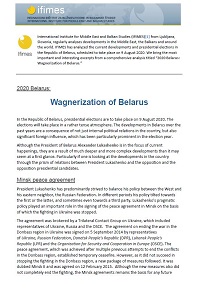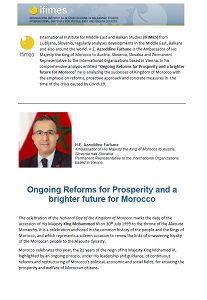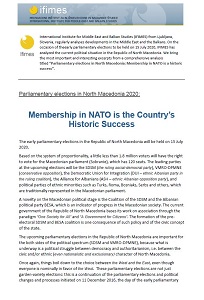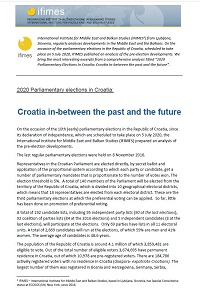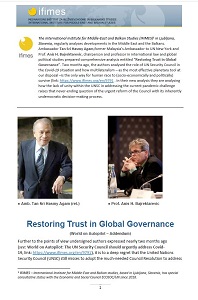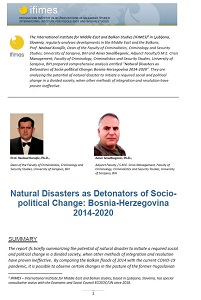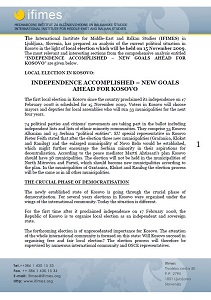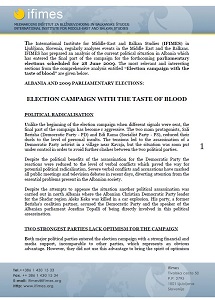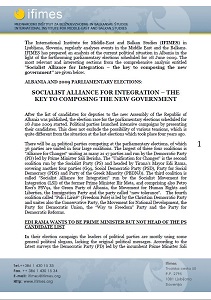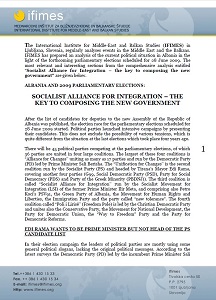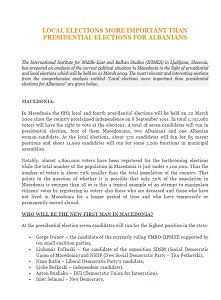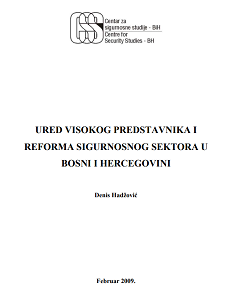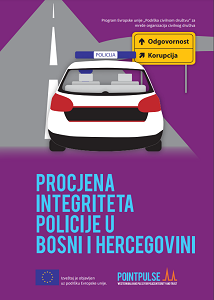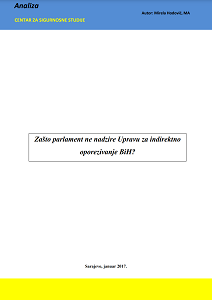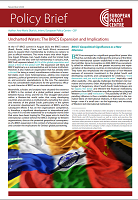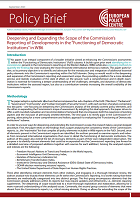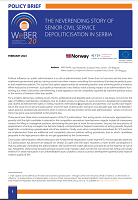Author(s): Denis Hadžović / Language(s): Bosnian
U post-ratnom periodu Bosna i Hercegovina je ostvarila značajan napredak u procesu izgradnje mira koji se, između ostalog, ogleda i u uspostavljanju državnih institucija u oblasti sigurnosti. Njihovo osnivanje predstavlja bitan doprinos smanjenu mogućnosti izbijanja ponovnog sukoba u BiH i pomoć na njenom putu integracije u euro-atlanske strukture. Nemjerljiv doprinos ovim ostvarenjima pružila je međunarodna zajednica, prvenstveno djelovanjem kroz Ured visokog predstavnika (OHR) u BiH, ad hoc institucije uspostavljene da nadgleda implementaciju civilnog dijela Dejtonskog mirovnog sporazuma. Zahvaljujući naporima OHR-a i međunarodne zajednice Bosna i Hercegovina provodi jednu od najuspješnijih reformi pravosudnog sistema u regionu i uspostavila je jedinstvene oružane snage, obavještajno sigurnosnu agenciju, graničnu službu, državnu agenciju za istraživanje i zaštitu, carinsku službu i državni sud. Ove institucije uspostavljene su ili zakonima nametnutim direktno od strane OHR-a ili indirektno, uz njegov permanentan pritisak, koji je u krajnjoj instanci vodio do kompromisa među političkim akterima u Bosni i Hercegovini. Imajući ove činjenice u vidu, namjera autora bila je da ovim istraživanjem ponudi svoj skromni doprinos praktičarima i akademskim djelatnicima koji se bave pitanjima izgradnje mira u svijetu. Jedan od primarnih ciljeva ponuđenog istraživanja je da podrži daljnji razvoj ovih procesa, te pruži uvid u iskustvo OHR-a stečeno tokom prvođenja aktivnosti na izgradnji mira u BiH, sa posebnim osvrtom na reformu sigurnosnog sektora. Ovom prilikom želim iskazati posebnu zahvalnost Ženevskom centru za demokratski nadzor oružanih snaga (DCAF) na finansijskoj podršci koja je omogućila realizaciju ovog istraživanja, kao i osoblju Centra za sigurnosne studije, Arminu Kržaliću, Jasminu Ramoviću, Sanji Mihajlović, Lani Tančici i Andrei Teftedariji koja je u tom periodu stažirala u Centru, za njihov nemjerljiv doprinos na izradi ovog istraživanja. Ujedno bih se zahvalio i svima onima koji su na direktan ili indirektan način doprinijeli provođenju istraživanja, bilo putem intervuisanja, bilo putem autorskog rada na literaturi koja je korištena za potrebe istraživanja, kao i biblioteci Centra za obuku za operacije potpore miru u Sarajevu (PSOTC – Peace Support Operations Training Centre). Nadamo se da će predočeno istraživanja, koje ujedno predstavlja i pogled iz perspektive lokalnih aktera, ostvariti svoju svrhu te pružiti doprinos raspravama koje se vode po pitanjima izgradnje mira u svijetu i reformi sigurnosnog sektora u post-konfliktnim društvima.
More...
